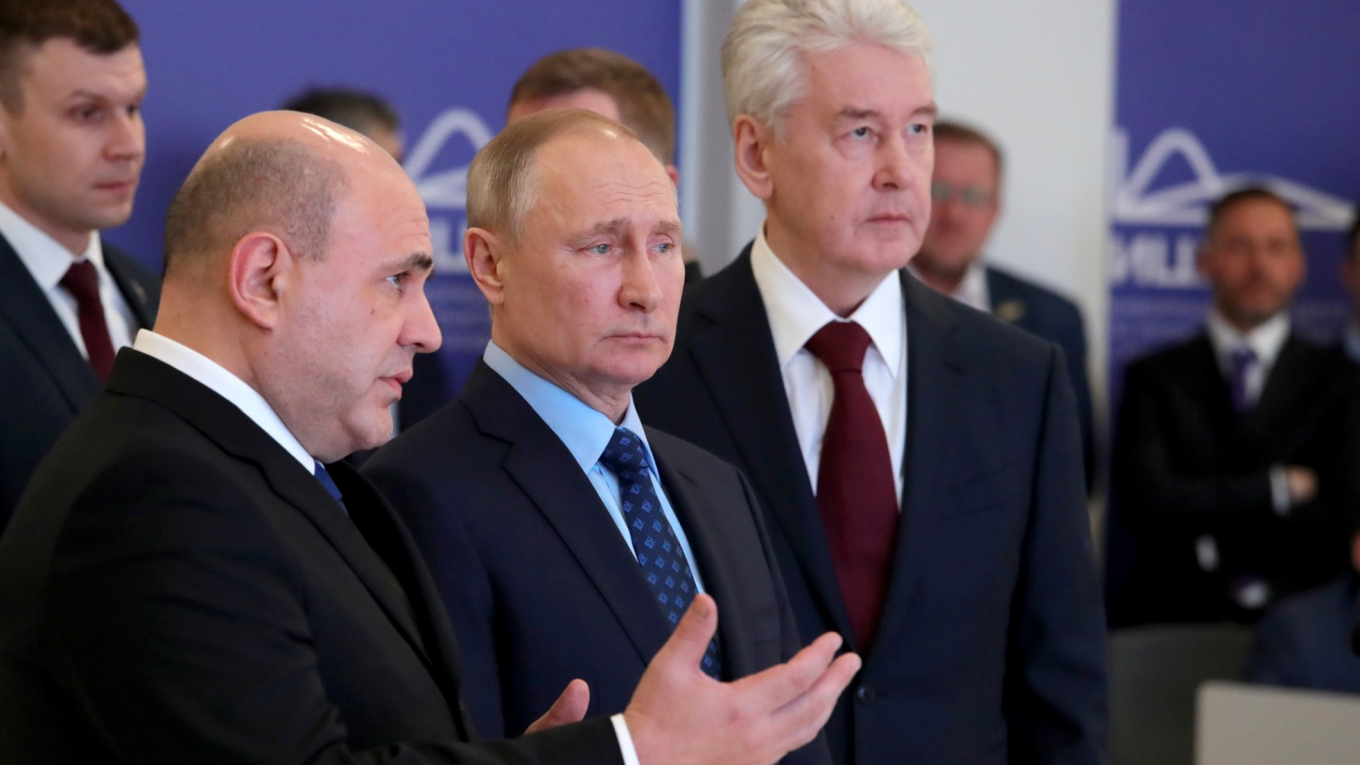Russian President Vladimir Putin on Monday urged Moscow's 12 million residents to respect a strict new lockdown, as other parts of the country began to introduce similar steps to curb the coronavirus outbreak.
The enforcement of the new rules, which Moscow Mayor Sergei Sobyanin suddenly announced late Sunday, coincided with the beginning of a "non-working" week Putin declared last week.
"I ask you to take these forced but absolutely necessary measures... very seriously and completely responsibly," Putin told Muscovites.
The capital has become the epicenter of the contagion in Russia, and Mayor Sergei Sobyanin's new rules allow only trips to buy essential goods, the hospital, or to take out the rubbish, for the next two weeks.
The Red Square in the heart of Moscow was eerily empty, and the streets of Europe's most populous city quiet though traffic could still be seen on the roads.
Police cars drove slowly through the streets, looking out for Muscovites breaking the rules.
Anna, a 36-year-old web designer living in south Moscow, told AFP the lockdown would be hard for her and her five-year-old daughter, but promised to "observe the quarantine" as she walked to the shop to buy bread.
But some were in no hurry to take the new rules to heart. Three teenagers flouted social distancing rules, walking and laughing together.
"Staying home with our parents will kill us quicker than the coronavirus," said one teen as the others nodded.
Regions eye lockdowns
At least 10 regions on Monday took Moscow's lead and introduced strict measures, with some taking them to even more extreme levels.
Chechnya strongman Ramzan Kadyrov ordered to stop all traffic going in and out of the region while masked men in black uniforms were patrolling streets, according to a video published by independent Novaya Gazeta newspaper.
In a televised conference with his representatives in Russian regions, Putin ordered them to inventory hospital beds and ventilators and threatened consequences if national measures are not enforced.
"It's not lack of discipline and common sense, it is criminal negligence," he said of local authorities who neglect to close down entertainment venues.
Putin also took a call from US President Donald Trump with the two discussing cooperation on the coronavirus response, the Kremlin said, without giving specific details.
Over the past 24 hours Russia has recorded 302 new cases — the biggest daily increase so far — taking the national tally to 1,835 cases of coronavirus and nine deaths.
At a government meeting, Prime Minister Mikhail Mishustin said a Moscow-style lockdown across the country was important to pre-empt a major outbreak.
He ordered the unlocking of 33.4 billion rubles ($418 million) to help 77 Russian regions with additional hospital beds and medical equipment.
In a rare televised address last Wednesday, Putin announced that Russians would not be required to go to work this week, but would still get paid. He also postponed a key public vote on constitutional reforms that would allow him to stay in power until 2036.
The government has yet to announce any significant measures to help the economy, and Russia's central bank on Monday warned that containment measures will lead to "a temporary but significant drop in economic activity in the coming months".
'Pray at home'
The powerful Russian Orthodox Church, which had initially said authorities had no right to close churches, finally fell into line on Sunday, with Patriarch Kirill calling on the faithful to pray at home.
"You can be saved without going to church," he told believers in an address.
The new isolation rules, which will be policed by a vast system of facial-recognition cameras in Moscow, came into force as Russia also closed its borders.
A Message from The Moscow Times:
Dear readers,
We are facing unprecedented challenges. Russia's Prosecutor General's Office has designated The Moscow Times as an "undesirable" organization, criminalizing our work and putting our staff at risk of prosecution. This follows our earlier unjust labeling as a "foreign agent."
These actions are direct attempts to silence independent journalism in Russia. The authorities claim our work "discredits the decisions of the Russian leadership." We see things differently: we strive to provide accurate, unbiased reporting on Russia.
We, the journalists of The Moscow Times, refuse to be silenced. But to continue our work, we need your help.
Your support, no matter how small, makes a world of difference. If you can, please support us monthly starting from just $2. It's quick to set up, and every contribution makes a significant impact.
By supporting The Moscow Times, you're defending open, independent journalism in the face of repression. Thank you for standing with us.
Remind me later.






